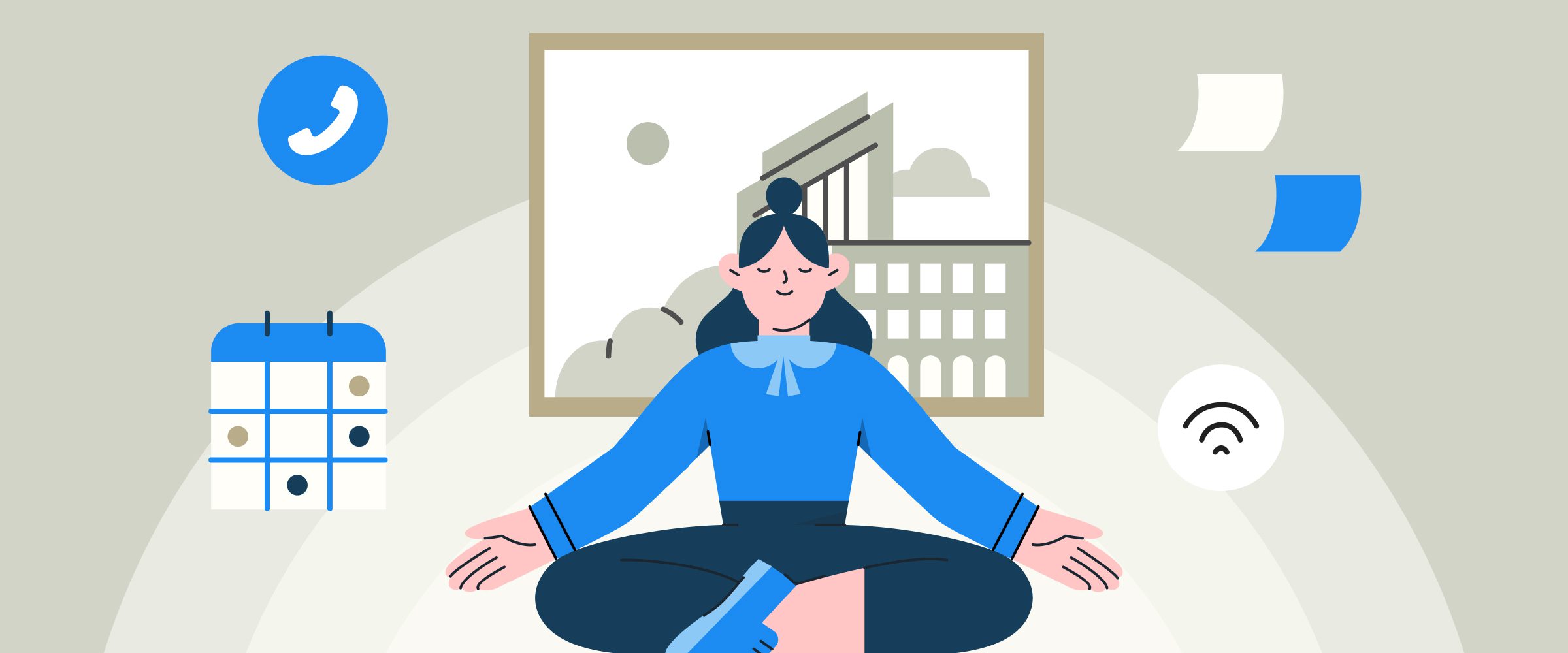Employee disengagement and burnout are at an all-time high. So much so that employees are leaving the workplace in droves, with some even leaving the workplace for good.
Cue: the Great Resignation.
We all know that there’s a close link between company culture and burnout. Companies that foster toxic, go-getter, and always-on cultures tend to have higher employee turnover rates. A study by MIT Sloan found that toxic workplace culture is 10.4 times more likely to contribute to attrition than compensation.
But while the opposite is true, burnout can creep on anyone—even the most dedicated of employees—when you least expect it. The Great Resignation prompted, or spurred on, by the pandemic is proof of that.
“[Burnout] is like a thief in the night. It doesn’t just happen to you—it’s a combination of things and events that creep into one’s routine in life,” explains May Sunega, HR leader of Brankas.
According to May, burnout became prevalent during the pandemic because remote work blurred the lines between personal and professional life. Whereas the office provided a clear boundary, working from home meant an endless supply of distractions. It also meant employees could work until late into the evening with nothing to signal them to hit the brakes.

This took a toll on employees’ mental health. And it’s also the reason why the concept of self-care became more prominent during this time. If employees are better able to manage their mental wellbeing through consistent self-care practices, then they’re better equipped to fend off burnout, and therefore become more productive employees.
“I’ve been in this industry long enough to tell you that people who know when to stop and take a break are more creative, productive, and engaged in the organisation,” says May.
“It’s like a relationship. You have to take care of yourself so you can be a better partner to someone. If you neglect yourself, you cannot give your best to another person.”
What is self-care culture?
Self-care is often associated with bubble baths and—things you do after work, as a reward for the day’s grind. But fostering a culture of self-care within a company often entails weaving moments of self-care throughout every employee’s day, week, or month.
This is because work is inextricably entwined with life, and when work gets too overwhelming, having a mindset of self-care can make or break burnout.
In other words, it empowers employees to prioritise and manage their mental health when the going gets tough. If employees are able to do so, then they can do their best work.

While it might seem obvious for employees to take breaks when they’re feeling overwhelmed, the way many company cultures are built puts the onus of self-care on the employee (though there are certainly exceptions). The company’s culture and policies may also be structured in such a way that does not promote self-care in the first place.
“For me, culture is the backdrop by which an employee’s lived experience is dictated,” Jan Philippe Tanchi, senior HR manager at Microsoft Asia-Pacific, says.

He elaborates:
“Let’s say your company’s culture is toxic. No matter what policies you put in place—unlimited leave, unlimited personal travel reimbursement—your employees won’t be able to maximise those policies because they will be judged at work. If you start first by looking at your company’s culture and correcting that culture towards the right direction, everything else will follow.”
Define self-care for your company
Now that we know why a self-care culture is important, the next step is to understand what forms of self-care they need to manage their stress and mental health. Feedback—both the ability to give and ask for it—then becomes a very powerful tool to help companies grow.
“It’s very critical to understand what causes talents to leave,” said Cary Shek, VP of people & culture at Klook.
At Klook, feedback is collected at regular intervals, Cary explains. They conduct “stay interviews” with employees to understand what makes them stay and what makes them frustrated. Klook also reviews different facets of an employee’s “lived experience,” including how they feel working with their managers through manager assessment forms.

The ability to really listen to that feedback can be pivotal in a company’s self-care strategy. For instance, if employees are saying they want a four-day workweek, maybe what they’re really implying is they want more flexibility or autonomy over their time.
Understanding this subtext gives you alternative solutions. If a four-day workweek isn’t feasible, then maybe you can offer flexible hours and work-from-home options instead.
In any case, having this information at hand offers action points. Klook, for instance, introduced the Joy Allowance—an allowance that employees can use for self-improvement and personal wellness, whether that be fitness memberships, work from home setups, or spa sessions.
In 2021, the company also developed its own mindfulness practices communicative, which happens via Webinar every Wednesday. Employees are invited to come together and practice these mindfulness exercises.
Making staff check-ins a normal practice can help companies identify the signs of burnout early on and work on interventions as soon as possible. These check-ins are essential to employees’ mental wellness during times of exceptional stress.
Create a culture that encourages self-care
Knowing what employees need and having the policies in place to meet those needs are the foundation of any self-care culture. But to promote its usage, the attitude or mindset of self-care must also be there.
Brankas’ May uses the leave policy as an example of why this is important.
“When people feel like it’s so difficult for them to take a break because they have to do all sorts of things and get all sorts of approvals just to go on leave is counter-productive,” May says. “Do not make people feel guilty for taking time off.”

In fact, Brankas has a policy called TOWN, short for Time Off When Needed. It’s exactly what it sounds like. Employees are able to take time off from work whenever they need to, whether it’s for mental or physical health reasons or personal emergencies. These TOWN leaves are separate from maternity and paternity leaves, and there’s also no cap on how many leaves an employee can take.
“It begets trust. I’ve never seen people take advantage of that,” May emphasizes. “It also sends a message that it’s OK to do what makes them happy. That is a very powerful message from an organisation.”
Don’t forget the role of the manager
As much as culture influences employees, it’s also created by employees. Managers, who act as role models to their teams, are the instruments with which culture is proliferated across teams. A manager who doesn’t schedule meetings during breaks or work hours will likely influence team members to do the same.
Unfortunately, the same goes for managers who don’t practice the tenets of self-care. If managers are notorious for crossing boundaries, scheduling meetings off-hours, or expecting replies outside work hours, then employees will follow suit.

This is where human resources steps in.
“If you look at any organisation today, the role of HR has evolved to now actually enhancing manager capability. What managers often forget is that they don’t just deliver team-wide results, but also ensure they show the right level of care and empowerment and development and role-modelling within their teams,” Microsoft’s Jan said.
To ensure that managers are aligned with the company’s values, human resources can intervene. According to Jan, the role of the manager became more important. And so, Microsoft’s HR has started to pivot its line managers to focus on three specific capabilities: Model, Coach, and Care.
Model refers to the things employees look towards managers to model work-life integration, such as leaving the office on time. Coach refers to the manager’s capability to “bring out the genius in their people.” And Care refers to the ways managers can show empathy towards employees, and make them feel like they’re cared for.
According to Jan, HR also makes sure the managers align with their teams on a particular way of working that they can all agree to, no matter how big or how small.
“It’s not just the manager who’s dictating behaviours. It’s a collaborative effort across the team to agree.”
Mental health comes first
It’s important to keep in mind that a self-care culture is not a cure-all for all issues relating to mental health. If the employee’s stress is rooted beyond stress and overexertion, then mental health professionals may need to be involved.
But in any case, building a culture of self-care is almost always worth it. Not just because it will help companies retain their people, but also because employees are humans first.

As Bala Subramanian, chief of staff at Brankas, puts it:
“[Putting employees first] is a personal conviction for me. There’s no company without its people. Employees all have families and personal goals—their own thing. At any point in time, respecting that is the most important thing.”






